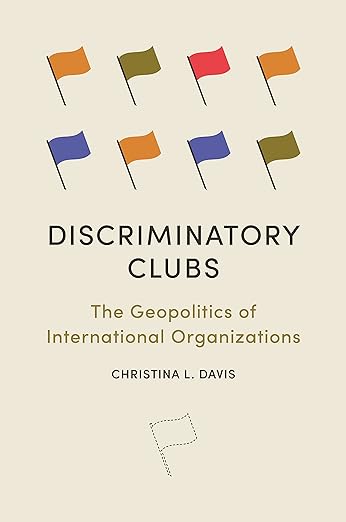Discriminatory clubs
the geopolitics of international organizations
- ISBN: 9780691247786
- Editorial: Princeton University Press
- Fecha de la edición: 2023
- Lugar de la edición: Princeton. Estados Unidos de Norteamérica
- Encuadernación: Rústica
- Medidas: 23 cm
- Nº Pág.: 448
- Idiomas: Inglés

Member selection is one of the defining elements of social organization, imposing categories on who we are and what we do. Discriminatory Clubs shows how international organizations are like social clubs, ones in which institutional rules and informal practices enable states to favor friends while excluding rivals.
Where race or socioeconomic status may be a basis for discrimination by social clubs, geopolitical alignment determines who gets into the room to make the rules of global governance. Christina Davis brings together a wealth of data on membership provisions for more than three hundred organizations to reveal the prevalence of club-style selection on the world stage. States join organizations to deepen their association with a particular group of states—most often their allies—and for the gains from policy coordination. Even organizations that claim to be universal, to target narrow issues, or to cover geographic regions use club-style admission criteria. Davis demonstrates that when it comes to the most important decision of cooperation—who belongs to the club and who doesn’t—geopolitical alignment can matter more than the merits or policies of potential members.
With illuminating case studies ranging from nineteenth-century Japan to contemporary Palestine and Taiwan, Discriminatory Clubs sheds light on how, for global and regional organizations such as the WTO and the EU, alliance ties and shared foreign-policy positions form the basis of cooperation.
1. Membership and international cooperation
2. Flexibility by design: rules for accession
3. Membership patterns in economic institutions
4. Accession to the GATT/WTO
5. The OECD: more than a rich country club
6. Japan's multilateral diplomacy
7. Club politics in regional organizations
8. Exclusion from universal organizations
9. Revisiting anarchical society









